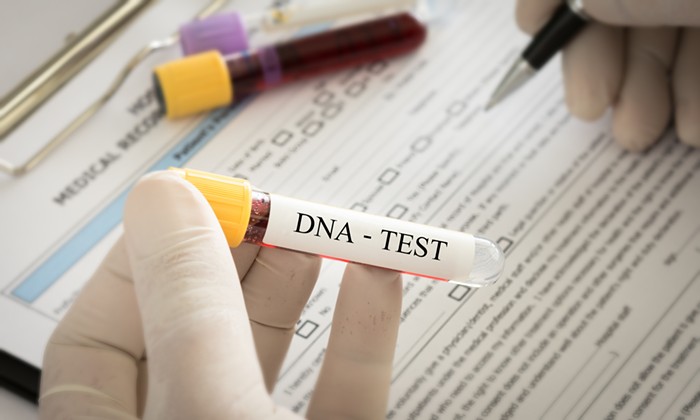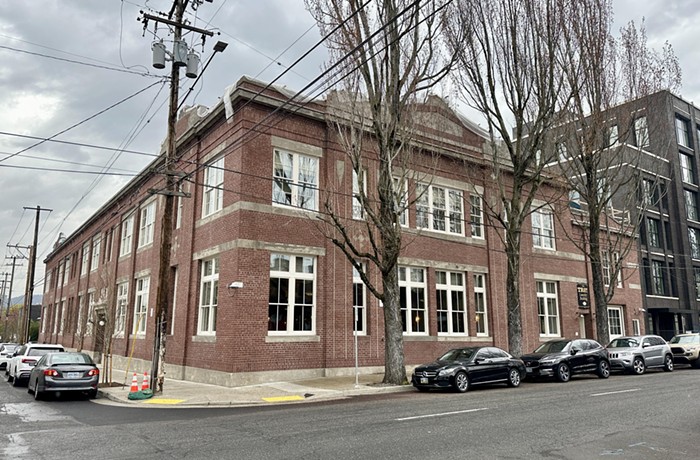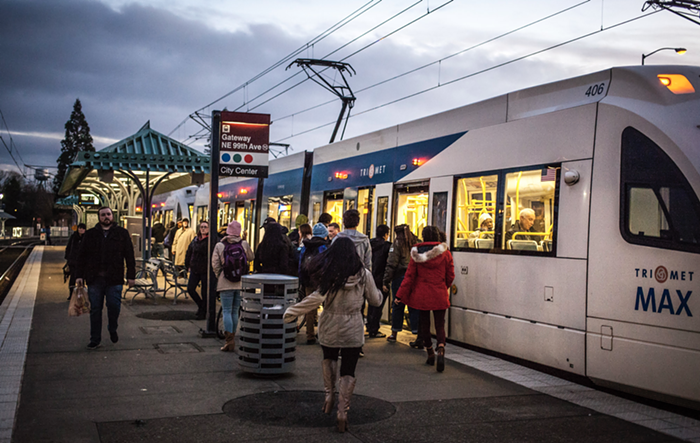
Hall Monitor is a regular column on issues related to Portland City Hall and its influence on the community it serves.
___
Tremaine Clayton wasn’t going to let a historic snowstorm delay the start of the Portland Street Response. The much-anticipated program, which sends a team of trained therapists, community health workers, and paramedics to respond to certain 911 calls instead of police, had already been delayed by a year thanks to the city’s COVID-19 hiring freeze. So on Monday, the day before the program’s pilot was slated to begin, Clayton brought a shovel to the lot where the program’s designated city vehicle was parked, where he scraped snow and ice away from the SUV’s tires to make the next morning’s start easier.
Clayton is a Portland Fire & Rescue paramedic who is part of the program’s inaugural four-person outreach team, which will spend the next year testing the emergency response model in Southeast Portland’s Lents Neighborhood. At 10 am Tuesday, he and his team navigated their white SUV through streets slick with ice and snowmelt to respond to their first calls, ranging from “there’s a person in the middle of the street yelling” to concerns about homeless camps. They dressed in gray fleece vests and jeans, and carried radios instead of weapons.
When met with looks of confusion by those who called 911 Tuesday, Clayton said he explained: “I’m here to help.”
In a city where adding police officers to a scenario isn't always helpful, it's an important distinction.
In one incident, a person had called to report a man who was blocking the doorway of a Lents business—making it impossible for the shop to open. When Clayton’s team arrived, he learned that the man had been injured and was bleeding. He needed medical care, but didn’t want to go to a clinic. Clayton offered to treat the man’s wound at the scene instead, and the man cautiously agreed. After receiving care, the man left the doorway and went on his way, and the shop was back in business.
“From an outsider’s perspective looking in, it was a relatively small thing,” said Clayton. “But to us, it was a huge success, both for the business owner and injured man.”
More importantly, both people’s needs were met without involving a police officer. A week earlier, a 911 response to the shopkeeper’s call would have drawn an armed police officer whose presence alone might have upset the injured man, instantly escalating the situation.
Both people’s needs were met without involving a police officer.
This novel interaction lies in sharp contrast with a more traditional 911 response that caught Portlanders’ attention that same afternoon.
The weekend’s winter storm had caused Fred Meyer’s NE Weidler store to lose power Tuesday morning, leaving a small window of time to get perishable grocery items to local food pantries before the shop violated food safety regulations. But icy roads kept food pickup trucks from reaching the store in time, forcing employees to throw away a not insignificant amount of food, turning two giant orange dumpsters into cornucopias of packaged sandwich meat, string cheese, yogurt cups, oat milk, and other perishable goods.
This caught the attention of local activists, who showed up and began collecting the discarded food in hopes of redistributing them to households in need. Fred Meyer staff asked them to leave. They didn’t. That’s when staff called the police.
This entire interaction points to a much bigger conversation about food insecurity in a country that throws out 72 billion pounds of perfectly good food a year. Capitalism is a heartless machine that runs on pitting underpaid grocery staff against well-meaning dumpster divers. But that’s a conversation for another day.
It was the police response to the Fred Meyer kerfuffle that deserves Portlanders’ critique.
Within a half hour of the 911 call, no less than 11 uniformed Portland police officers (fine, three were officers-in-training) had arrived to address the small gaggle of scavengers. The optics were terrible: Videos and photos taken at the scene show armed police appearing to guard a dumpster full of food from people during a time of incredible need. After a brief standoff, the officers drove off.
Officers left the scene Tuesday without resolving the situation that drew them there in the first place. In many ways, their arrival had only made the situation worse: Dozens of angry Portlanders were drawn to the scene after seeing PPB’s outsized response documented online. After police left, the upset crowd directed their frustration at the store’s employees, causing staff to again call 911. This time, officers didn’t show.
The incident provides easy ammo for Portlanders already critical of their police force after last year’s militarized response to largely peaceful protests. What’s more, the outsized show of force contradicts with stories that Portlanders had been hearing for months from weary PPB spokespeople.
Officers left the scene Tuesday without resolving the situation that drew them there in the first place.
Over the past year, Portland has experienced growing delays in 911 response times by officers, sometimes leaving victims of violent crime waiting over an hour for police to arrive. Sometimes they never show up. As an explanation, PPB Chief Chuck Lovell has pointed to officer retirements, resignations, and training delays caused by COVID-19 that have diminished the number of rank-and-file cops able to respond to calls in a timely manner. This concern is reflected in the PPB’s 2021-22 proposed budget, in which Lovell declined to make the 5 percent budget cut that’s been mandated by Mayor Ted Wheeler of all city bureaus. Instead, Lovell quietly suggested cutting his budget by just 1 percent, to allow PPB to fill 100 vacant bureau positions.
Lovell’s case may be weakened, however, by the police response Portland saw Tuesday. In the midst of a citywide power outage, a debilitating winter storm, and an ever-present deadly pandemic, PPB dispatched 11 officers—nearly three times the size of Portland Street Response’ entire outreach team—to an argument over food waste. This, a day after the city reportedly saw a 130 percent increase in 911 calls compared to the previous time last year.
While Portlanders spit insults at police officers guarding a dumpster Tuesday, Clayton and his colleagues collected gratitude from members of the public they encountered on the street. Asked if his team had received any negative feedback yet, Clayton paused.
“The only complaint I’ve heard is that there just aren’t enough of us to meet the need,” he said.


















